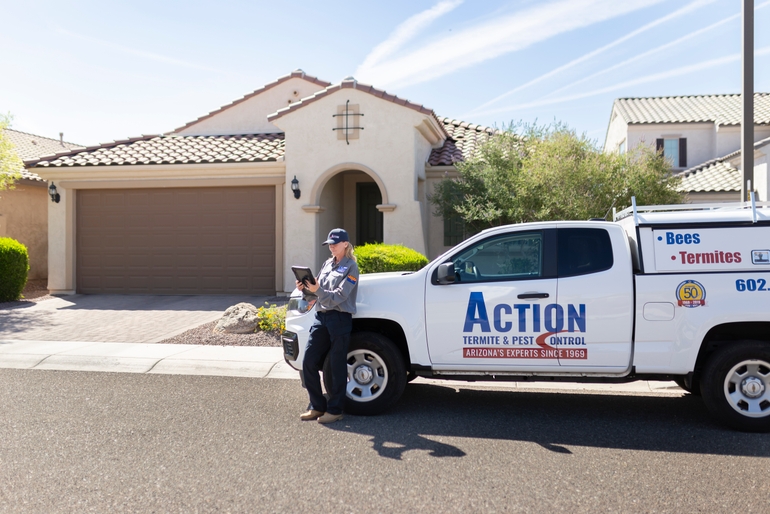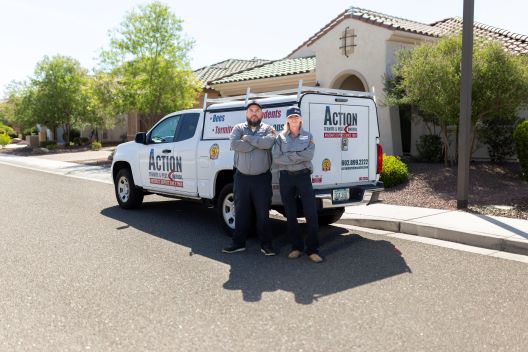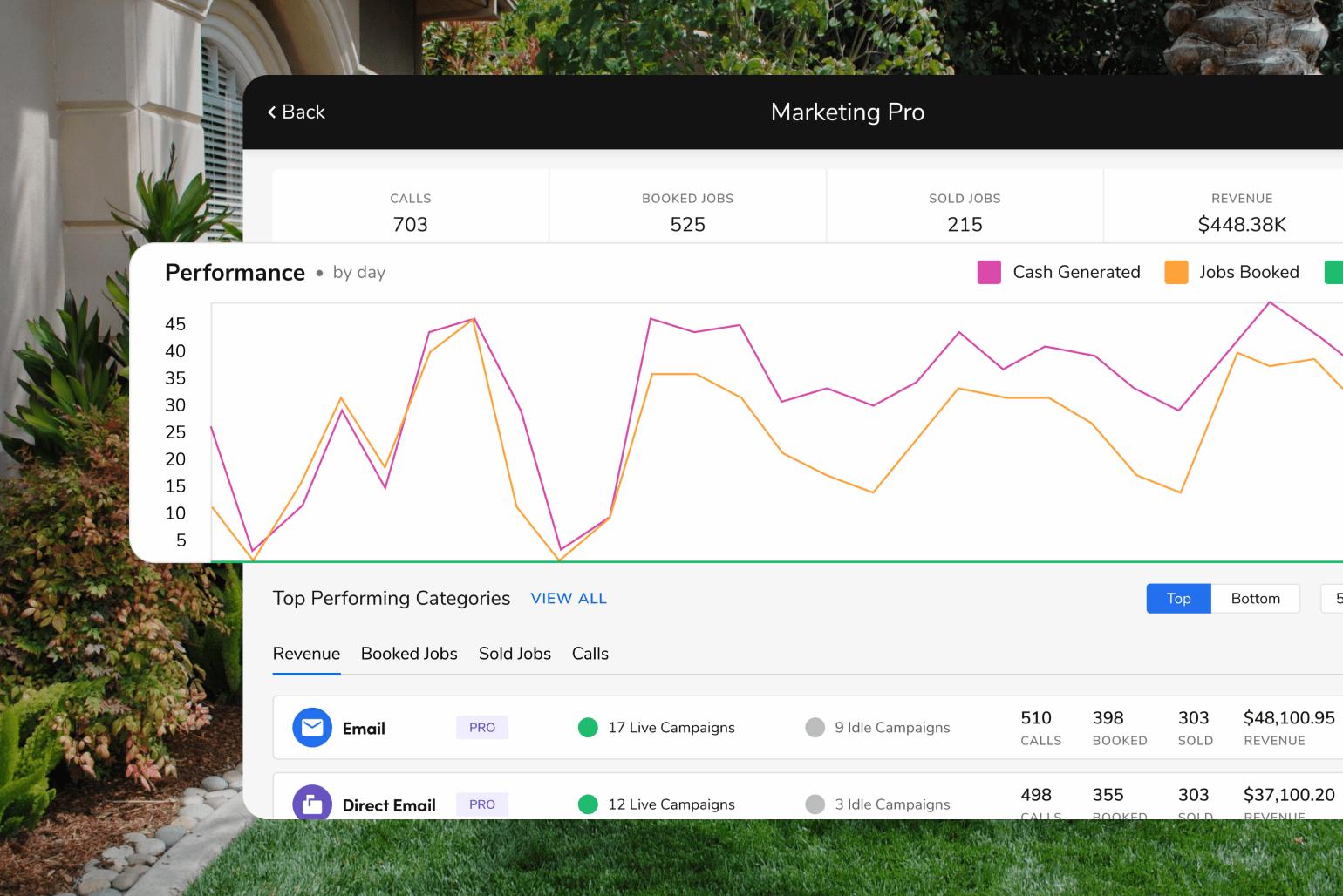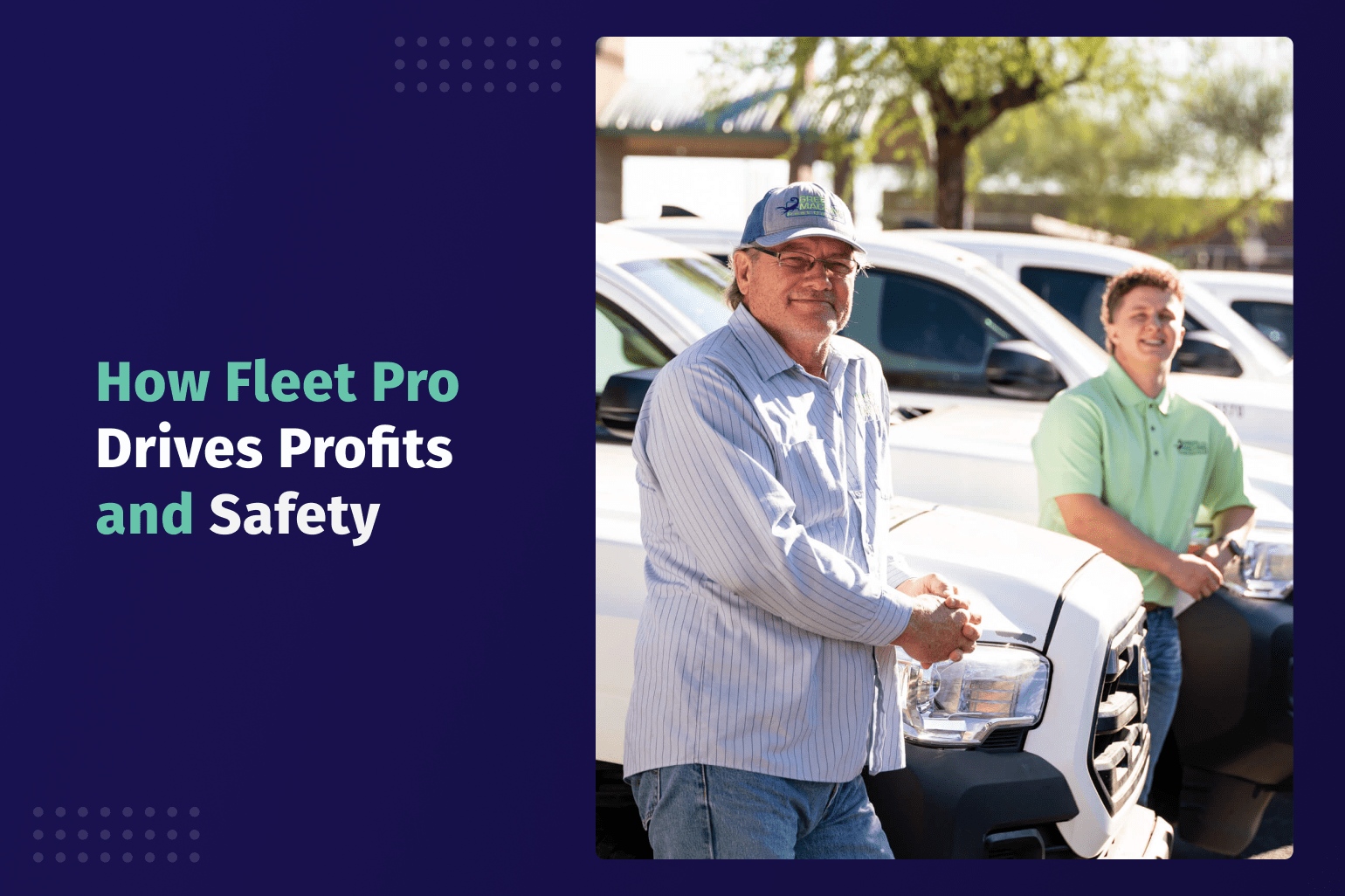Best Trucks for Pest Control Business (Models, Features & More)

What’s the most important tool for a successful pest control business? A strong argument can be made for your company’s work trucks. A well-managed fleet equips your crews with the tools to deliver superior customer service.
Choosing the best vehicles for your pest control needs pays off with these benefits:
Safety
Operational efficiency
Fuel savings
Maximum productivity
Reliable customer service
Professional on-site performance
Employee satisfaction
Company image
Your fleet vehicles serve as a technician’s office, a security system, a tool closet, a billboard, and a capital asset. They are more like workhorses than work trucks. Suppose you’re thinking about upgrading or expanding your fleet. In that case, examining vehicle styles, essential features, safety and compliance considerations, and modification options will steer you toward a smart investment for your pest control business.
Essential Features of Pest Control Trucks
There is no one-size-fits-all pest control work vehicle. Pickup trucks, cargo vans, cutaway trucks, or another type of vehicle might best meet your needs.
First and foremost, any vehicles must be safe for transporting pesticides and other chemicals. They must also protect the substances from theft and access by non-employees, especially children.
Reliability is the second-most important consideration. According to Purdue University Extension, pest control companies lose up to $1,000 a day when a fleet vehicle is out of service.
Other factors to consider include:
Cost—weigh the cost of ownership, not just the purchase price
Gas mileage—pest control businesses in urban areas tend to cover less territory
Comfort—technicians spend a lot of time in the vehicle
Storage capacity—the space must satisfy safety regulations and convenience preferences
Security features—these are especially important if technicians keep their vehicles at home
Payload—if you use heavy equipment, such as generators and heaters, for treating bedbugs, you might need to pull a trailer
Customizations—pest control companies use organizational and security upfits to tailor the vehicle to their needs
Source—if you prefer to buy from a local dealership to support the community or a client, it will affect your options
Before you decide what factors are most important for your business, ask technicians what they want in organization and comfort and audit your current fleet. Productivity and customer service depend on the quality of your fleet.
Most Common Pest Control Trucks to Consider
While one type of truck or work van might be best for your pest control business, you might benefit from a fleet with various vehicles for different uses. The common vehicles are: cargo vans, cutaway vans, utility trucks, pickup trucks, and sedans.
Each type of vehicle has pros and cons, depending on the fleet size, the services the company offers, how long the company wants to keep the fleet, and where vehicles are stored.
Cargo van
A cargo van’s cab is integrated with the cargo area as a single unit. Unless the van is customized with separation, the driver and passenger seats have access to the storage space behind them. Cargo vans, also called sprinter vans, are considered one of the most cost-effective options for pest control businesses.
The cargo area offers ample space for organizational upfits like shelves, drawers, and barrel lockdowns—the plentiful options provide maximum flexibility. The windowless vehicles create a broad canvas on the outside for company identification.
Preferred by: Urban and suburban companies that don’t transport much heavy equipment
Popular models: Ford Transit Cargo Van, Chevrolet Express, Mercedez-Benz Metris, Nissan NV200
Pros | Cons |
Fuel efficiency Ample space Affordability Driver visibility | Light payload No exterior organization Need custom separation between driver and chemicals |
Cutaway van
Also called a box truck, a cutaway van’s most distinctive feature is the cab and cargo area separation. They are standalone units, providing built-in security for chemical storage.
Many drivers find a cutaway van more comfortable than a cargo van. The storage space has similar pros and cons, but a cutaway van comes in more sizes, has more room for sprayers and ladders, and might have exterior storage components for easy access to small tools. The interiors are highly customizable, just like cargo vans.
Preferred by: High-level technicians who need a lot of tools
Popular models: Chevy Express Cutaway, GM Evolve, Ford E-Series Cutaway
Pros | Cons |
Many customization and upfit options Ample storage Security | Maneuverability in cities No side-door access for the deep cargo area Low gas mileage |
Utility truck
These heavy-duty specialized trucks look more like a pickup than a box truck, but the cargo area comprises individually locked compartments instead of an open bed. There could also be a combination of enclosed and unenclosed areas for a happy medium between convenience and security.
Utility trucks, also called service trucks, are durable enough for country roads and mounted equipment but on the bulky side for negotiating congested cities. They don’t have the ample open floor space of a cargo or utility van, limiting the amount of big equipment or barrels one can hold. Any area large enough for equipment in the middle is likely to be unenclosed.
Preferred by: Companies whose vehicles take a beating on unpaved roads or off-road terrain
Popular models: Knapheide Utility Van (KUV), Ford F550
Pros | Cons |
Durability Customization Exterior organization | Security Low gas mileage Bulky |
Pickup truck
Pickup trucks are popular options for pest control professionals because they are more affordable than cargo vans (at least to purchase). Adding a camper top takes care of the security liability. However, they have limitations, like transporting tall ladders.
Pickup trucks come in various sizes, so your fleet can include smaller models when a backpack sprayer and a few tools will do the job and bigger trucks for transporting heavy equipment. Pickup trucks can also pull a trailer and be outfitted with versatile storage systems.
Many technicians like the convenience of accessing a truck bed rather than climbing into a van and prefer driving a familiar vehicle.
Preferred by: Residential exterminators
Popular models: Ford F-Series, Chevrolet Silverado and Colorado, Toyota Tacoma, GMC Sierra, Ram 4500 and 5500
Pros | Cons |
Accessibility of open work environment Affordability Customizable storage solutions | Weather exposure Limited ladder storage Limited advertising space |
Sedan
Don’t overlook the affordable sedan as an option for your fleet. Salespeople and managers can use them. If technicians make any service calls that don’t require a lot of pesticides or chemicals, then the trunk might suffice for storage.
Sedans are fuel-efficient, easy to maintain, and can turn into a creative advertisement on the road—like Truly Nolan’s signature Mousecars and Ant Trucks. Imagine what a marketing team could do with a Volkswagen Beetle.
Preferred by: Small businesses and companies with a salesforce
Popular models: Kia Rio, Chrysler PT Cruiser, Nissan Sentra, Toyota Prius (electric)
Pros | Cons |
High gas mileage Compact for city use Comfort Professional | Limited storage capacity Security Not customizable |
Modifications and Customizations
Most pest control professionals customize their vehicles with storage and security solutions. The options range from DIY aftermarket storage for a truck bed to professional upfitting by a specialist, fleet manager, or dealership.
Upfitting is an investment that pays off in several ways, including:
Functionality—organizing tools and supplies in shelves, drawers, and bins boosts productivity and efficiency and keeps these items from getting lost or damaged. A clean, orderly appearance presents a professional image.
Security—high-quality locking systems protect your investment and guard against downtime due to lost equipment. They also help you meet regulations for storing chemicals.
Professional-grade equipment—spray rigs and other pest control necessities, can be integrated into the vehicle for safety and convenience.
Compliance—pest control requires specific handling of chemicals. Upfitting helps you comply with those regulations.
Consider these popular upfits and customizations to increase your efficiency, productivity, and security measures:
Bed slides to pull equipment from a truck bed
Truck cap with side access to toolboxes
DECKED organization systems for pickup trucks
Electrical plug-ins to power a generator
Truck toppers with integrated spray rig
Installed liquid holding tank and pump
Ladder racks
Telematics to track driving data
Flooring, such as rubber, aluminum, hardwood, and a drain pan
Compliance with Regulation and Safety Standards
Compliance is one of the first things you learn when you start a pest control business, and the fleet is one of the biggest sources of risk and liability.
Regulatory requirements depend on vehicle and cargo weight, cargo content, number of passengers, and travel locations. Rules governing the transportation, storage, and security of chemicals have the biggest impact on your fleet's features. Ensure you understand federal, state, and industry requirements and that your fleet is appropriately equipped.
Separating drivers from certain quantities of pesticides might require a partition in a cargo van when the cab and cargo space are a single unit.
Proper documentation is a critical and time-consuming part of compliance. Thoughtful truck setup makes running inspections easier, keeping track of materials, and maintaining accurate, updated records.
Software is another resource that helps keep your fleet compliant. FieldRoutes, a ServiceTitan Company, integrates with Fleet Pro, a suite of fleet management tools including maintenance reminders, location tracking, and surveillance with AI-assisted smart cameras.
Common Challenges to Avoid
Fleet maintenance is one of a pest control company's most expensive and time-consuming operations. FieldRoutes recently surveyed its pest control users on their top fleet management concerns. Here are some major issues driving up vehicle expenses and how fleet management software provides a solution.
Concern: Managing fuel costs
Solution: Optimizing routes and monitoring vehicle usage data
Control the impact of high fuel costs by using the software’s route-optimization tools to find the most cost-effective way to do each job and collect vehicle driving data. The software provides easy-to-use reports to catch inefficiencies before your fuel bill breaks the bank quickly.
Concern: Distracted driving
Solution: Driver scorecards
Proactive fleet management reduces the risk of an accident by 75 percent. Fleet management software uses data from easily installed cameras and GPS to collect data points on drivers, such as hard braking and accelerating, speeding, and idling time. An audio message alerts the driver in real time, and the incident is recorded on video. Fleet management software analyzes the data and produces a driver scorecard so you can coach specific behaviors that need improvement and establish measurable goals.
Concern: Longevity of fleet
Solution: Preventive maintenance schedules
Stay on top of preventive maintenance to eliminate unnecessary maintenance expenses and vehicle downtime. Set up a schedule and alerts in your fleet management software so you don’t miss any scheduled maintenance. Studies show proactive maintenance decreases vehicle breakdowns by 50 percent.
Other benefits of tracking driver and vehicle usage in fleet management software:
Avoid inaccurate time cards by collecting data on drivers clocking in too early or out too late.
Reduce time spent on insurance claims by providing all data and videos related to an accident.
Save 15 percent on insurance premiums using fleet management software with real-time alerts and camera footage.
Allow drivers to perform digital inspections and discover maintenance issues sooner.
Protect Your Trucks With Fleet Management
Choosing the best vehicles for your pest control business is critical for success. Maintaining and managing the fleet is just as crucial for productivity and expense control. Fleet Pro streamlines all aspects of protecting and maximizing your fleet with data on safe driving, route optimization, maintenance schedules, video capture, and more powerful tools.
Take it for a spin by scheduling a free demo of FieldRoutes Operations Suite today.





